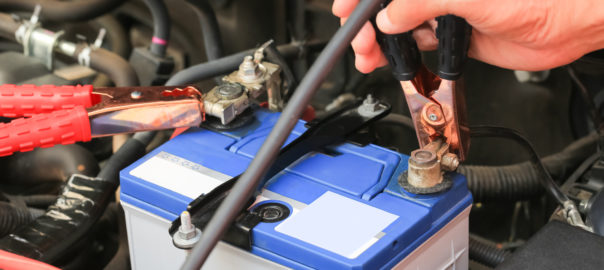Drained car batteries are some of the most frustrating – avoidable (!) – and even dangerous issues that commonly crop up with vehicles and lead to a need for roadside assistance service. In this blog entry, the car battery charging and vehicle recovery service experts here at Chicago Towing will detail the main causes for car batteries to experience power drainage.
Leaving Lights On
Leaving Vehicle Lights on rapidly causes batteries to drain. Some modern vehicles have a feature that automatically turns headlights off, but it’s always a good idea to make sure that all vehicle lights are turned off when leaving your vehicle.
Parasitic Battery Draining
This battery draining is caused by other components in your vehicle continuing to run after the vehicle is turned off. If there’s a poorly installed fuse or wire, parasitic drain can drain the main battery of the car.
Broken Charging Systems
If the positive and negative battery charging terminals are loose or have been corroded, your battery will have issues transmitting its power to your car. This can cause sudden stall-outs, or permanently damage the electronic components of your vehicle. Prevent corrosion by regularly cleaning battery terminals.
Alternator Problems
Alternators recharge batteries and send power to lights, stereo, windows, and A/C. If your alternator has a bad diode, yoru battery can run out very quickly. It can also cause the circuit to charge even when the engine is turned off, potentially making it so your car won’t be able to turn over and start at all.
Temperature Based Issues
In extremely hot or cold weather, sulfate crystals can build-up in your battery, damaging it’s longevity. It can take longer for car batteries to charge in extreme temperatures, especially if you’re mostly taking short drives. If possible, park your vehicle in a climate-controlled garage.
Short Trips
If you’re taking only multiple short trips, your battery can charge, as batteries put out the most power when starting a vehicle. Turning off your vehicle before the alternator can recharge can cause batteries to have issues holding a charge (this is most common with older car batteries.) By allowing your car to run for a long time, you can give your alternator and battery more time to recharge.
Older Batteries
Weak, degraded, or out-of-date batteries will drain quickly and have a harder time holding a full charge. If your car has trouble starting on a consistent basis or won’t work even after a jump start, your car’s battery may have worn out. Replace your car battery every 3-4 years to avoid this.

